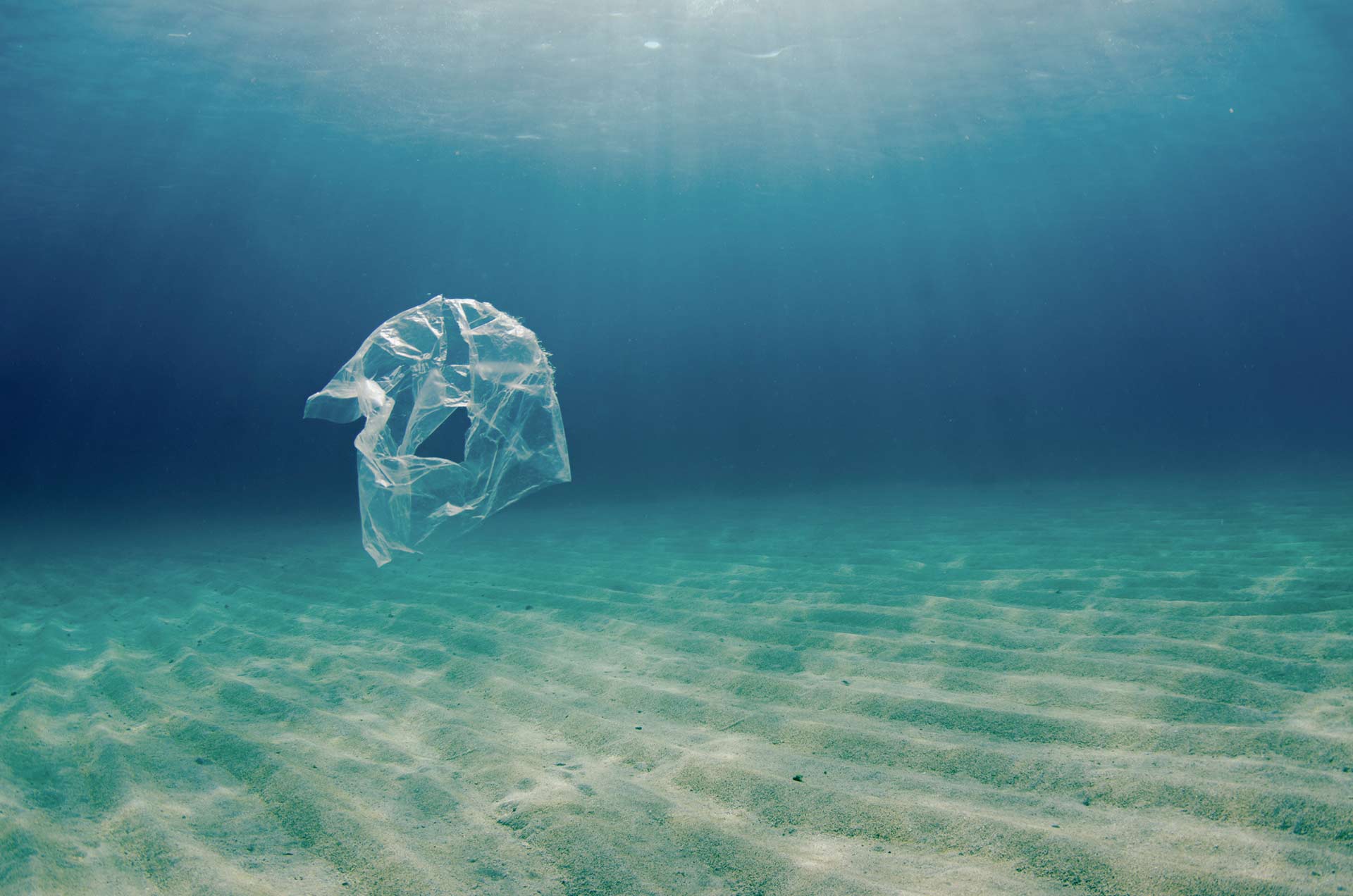Vision for the future
We believe in a future where Aotearoa is free from plastic pollution. Our beaches are pristine. Our urban environments are clean, our fisheries are protected and safe. Alternative reuse and refillable systems replace single-use plastic and we only use plastic where we need to. We want a future which brings prosperity without waste. A place our children and grandchildren will be proud to call their home.
After the bag ban
It started with turtles and the humble plastic bag. Now, New Zealanders are waking up to the full implications of the plastic crisis in our oceans.
This vast unseen mass of marine plastic is entering the food chain at every level from plankton to whales, including the fish we eat.
Beach audits show the vast majority of plastic pollution on kiwi beaches, 77% is single-use, stuff we use once and throw away without thinking.
The companies which sell this stuff to us, call it convenience. This outdated, disposable thinking lies at the heart of the problem.
We call on the Government to adopt a national action plan to turn the tide on plastic pollution.
Playing catch up
The public outcry about single-use plastic shopping bags shows us that New Zealanders care enough about our seas to make significant change.
Our government’s ban on single-use plastic bags at supermarket checkouts is a good start, but here on our clean green islands we are playing catch up with the rest of the world.
Other countries like France, Costa Rica, Vanuatu and Taiwan, to name a few, have already come up with national plans for single-use plastics We don’t have one. It’s time we did.
Emphasis worldwide is beginning to shift from consumers to producers. From those who use plastic to the corporations which make and profit from it.
What are corporates doing?
People around the world are asking why corporates are planning to increase the production of single-use plastics by 40 per cent. We’re already dumping one truckload in our oceans every minute.
We’ve tried voluntary measures, this reckless behaviour is crying out for regulation of the so-called Fast Moving Consumer Goods (FMCG) industry. Companies like Coca-Cola, Nestle and Unilever.
Despite what these plastic-producing companies might claim, recycling alone is not the answer.
More than 90% of plastics ever produced have never been recycled.s
Mountains of plastic bales are building up at dumps round the country as councils search for places like Malaysia and Indonesia to send it to, since China refused to take it.
Four sobering facts
- There are up to five trillion plastic particles in our seas enough to circle the earth more than 400 times.
- 94% of ocean plastic ends up on the seafloor. 1% of marine plastics are found floating and 5% end up on beaches
- Up to 9 of 10 seabirds, 1 in 3 sea turtles and more than half of whale and dolphin species have ingested plastic.
- 7 out of 8 of NZ’s most common caught fish have been shown to have eaten plastics
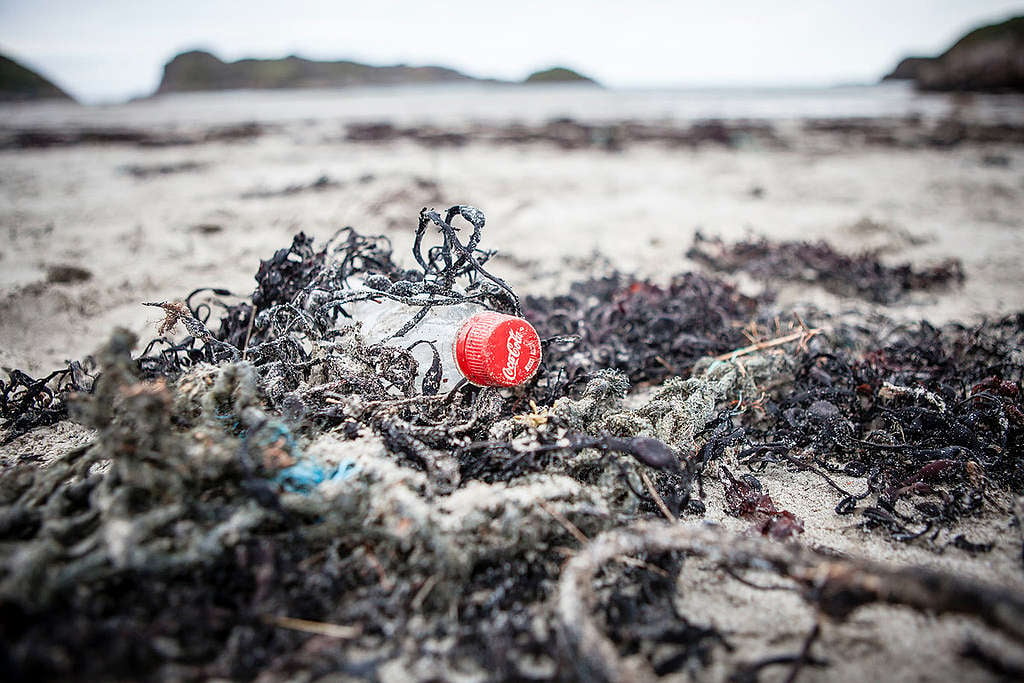
A plastic pollution crisis
These are all clear signs of a crisis. We urge the Government to treat it as such.
Based on data analysed from two different independent sources (Sustainable Coastlines and Be A Tidy Kiwi 2018 datasets), here is a list of the ten most common categories of single-use plastics found on New Zealand beaches:
The top ten plastic offenders
(in no particular order)
- Fishing gear
- Bottles lids and caps
- Plastic bags
- Food wrappers
- Polystyrene Foam packaging
- Cigarette butts and filters
- Coffee Cups and other takeaway packaging
- Balloon and lollipop sticks
- Disposable cutlery
- Coffee stirrers and *straws
* NOTE: Greenpeace does not support a phase-out of single-use plastic straws. Some people with accessibility needs require a plastic straw to drink. While some reusable alternatives work well for some people, for others there may be no reusable alternative that is suitable. More work needs to be done in this area to find a solution that works for people and the planet.
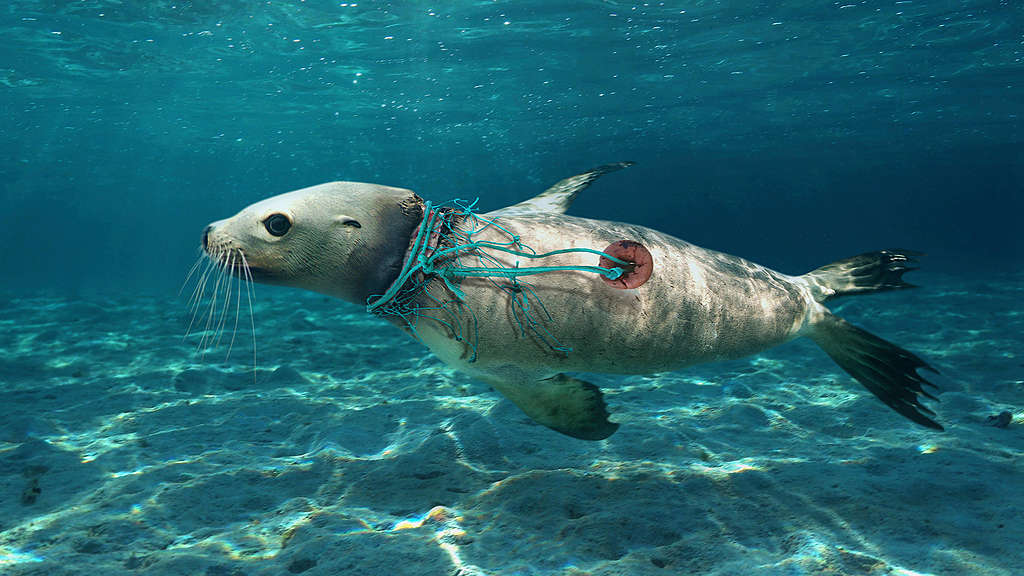
Greenpeace and a coalition of other environmental organisations – Jane Goodall Institute New Zealand, Forest & Bird, Para Kore, The Non-Plastic Maori, Zero Waste Network, Kiwi Bottle Drive, The New Zealand Product Stewardship Council, Plastic Diet, Tipping Point, Wastebusters, and Global Action Plan Oceania – offers this four point action plan to tackle these top ten offenders – a plan to end plastic pollution:
Four guiding principles
1/ On its own, recycling isn’t the solution
Recycling alone has not, and will never solve the problem of rising plastic pollution.
Corporates use the pretence of “recyclable” products to perpetuate “business as usual.”
Per capita, New Zealand is one of the most wasteful countries in the world and the majority of our recyclable plastics are being sent overseas.
Low income communities in these countries disproportionately suffer the burden of our cheap disposable plastic.
We need to find our own solutions to single-use plastics right here with reduction, redesign and reusability.
2/ Refill first
“Compostable” cups and thicker-weight plastic bags are simply swapping one single-use material for another.
These false solutions perpetuate the throwaway culture that lies at the heart of our crisis.
To truly drive change, we need to create new systems to deliver products we need with refillable and reusable alternatives.
New Zealand has a chance to become a leader with everything from drinks to shampoo, milk to detergents being delivered in reusable containers, refilled and used over and over.
3/ Polluters pay
Those that benefit from cheap and disposable plastics should be the ones to pay for the mess.
In particular the so-called Fast Moving Consumer Goods (FMCG) sector. Companies like Coca-Cola, Unilever, Nestle, Procter & Gamble.
For too long the environment, taxpayers, ratepayers and councils have been paying the bill on excessive plastic waste, and it’s time the rules changed.
This means the producers, especially the FMCG sector, should cover the cost of collection, transport, processing and clean-up of single-use plastics.
We would like to see an effective Extended Producer Responsibility (EPR) scheme for plastic drink bottles and also for food packaging.
The plan should also include an EPR for plastic fishing gear.
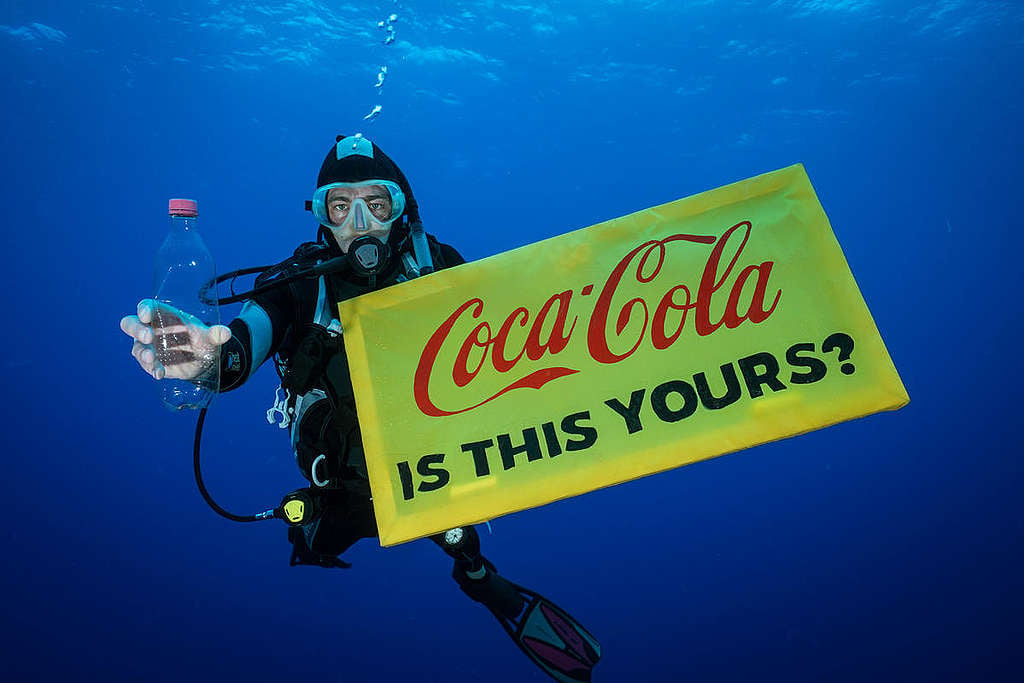
4/ Leading the world
Plastic pollution is ultimately a worldwide issue and we have the opportunity to play a leading role.
By working with our fellow Pacific nations, among others, we can help deliver an international legally-binding agreement on marine plastic pollution.
New Zealand should build support for a mandate to begin negotiations on such an agreement at the next UN Environment Assembly in 2019.
Ultimately this could result in a landmark global agreement to protect our marine environment by phasing out plastics that are degrading our oceans and our food chain.
A four point plan for a Plastic Free NZ
1/ Ban the avoidables
The NZ ban on lightweight shopping bags is a valiant beginning.
Now we’ve got to urgently move on to other single-use plastics, starting with the “avoidables.”
Bottles, coffee stirrers and disposable cutlery. Non-essential items we simply don’t need that are polluting our coasts. These need to be banned. Just like the bags.
* NOTE: Greenpeace does not support a phase-out of single-use plastic straws. Some people with accessibility needs require a plastic straw to drink. While some reusable alternatives work well for some people, for others there may be no reusable alternative that is suitable. More work needs to be done in this area to find a solution that works for people and the planet.
2/ Put a price on their head
Plastic drink bottles, caps and lids are among the worst offenders on our beaches.
Putting a price on their head, a deposit refundable to consumers when they return the bottles for recycling, would go a long way towards curbing this plastic menace.
We’d like to see the Government adopt the Kiwi Bottle Drive’s plans for a national container deposit scheme.
This scheme would offer further opportunities to create reuse and refill systems for bottles, kickstarting a circular economy.
3/ Plastic pollution levy
The centre of the plastic offenders list contains “problematic” items like coffee cups and lids, food packaging, takeaway containers, cigarette butts, balloon and lollipop sticks.
The cheap cost of plastic makes it hard to dissuade corporates from making and selling them.
A levy is proposed on these kinds of single-use products, making it more economic to produce reusable alternatives or reduce excessive and ridiculous packaging.
The money could be used to fund research on redesigning products and packaging so they don’t end up floating around in our oceans for centuries.
4/ National reduction targets
We need a national target to keep us on course.
The plastic pollution action plan calls for a 50 per cent reduction of SUP’s on the top ten offenders list by 2025, and 80 per cent by 2030. Ultimately they would be phased out altogether.
-
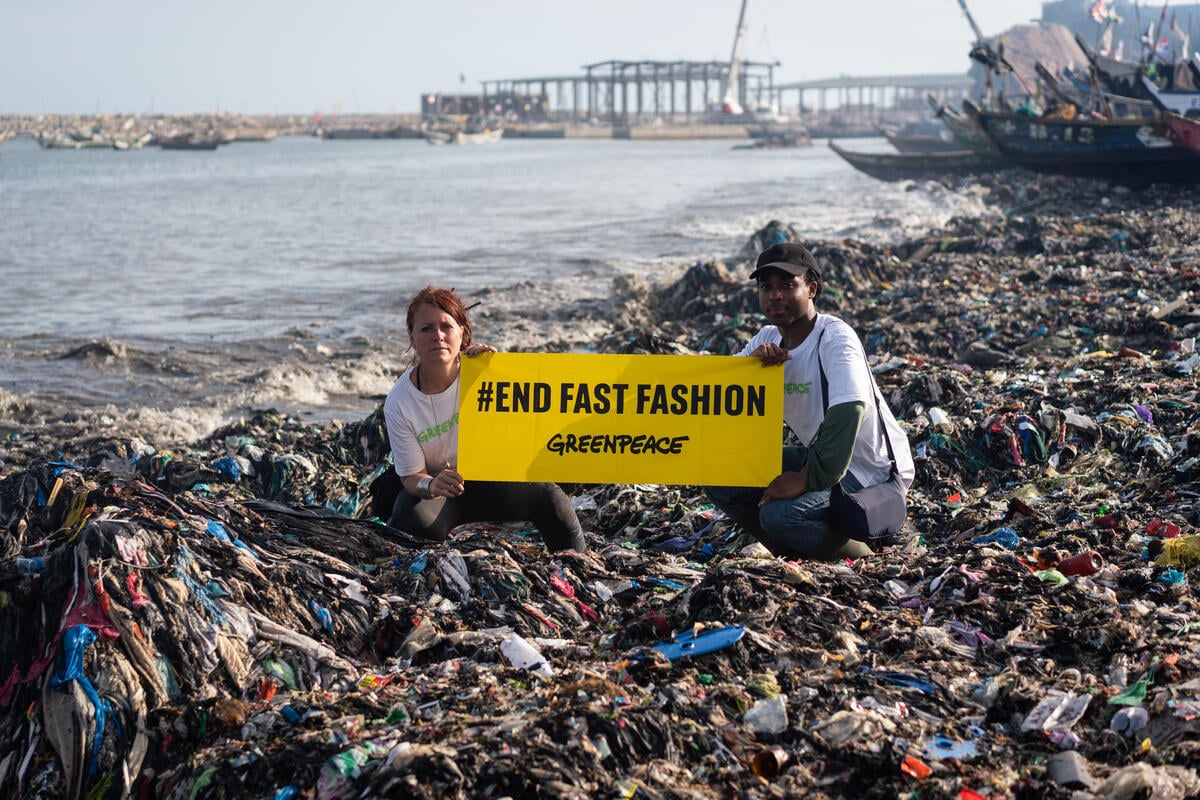
Fast fashion problems and 4 reasons it will never be green
Fast fashion brands flood the market with cheap, trendy clothing at an unsustainable rate, creating environmental and social harm. 🥵
-
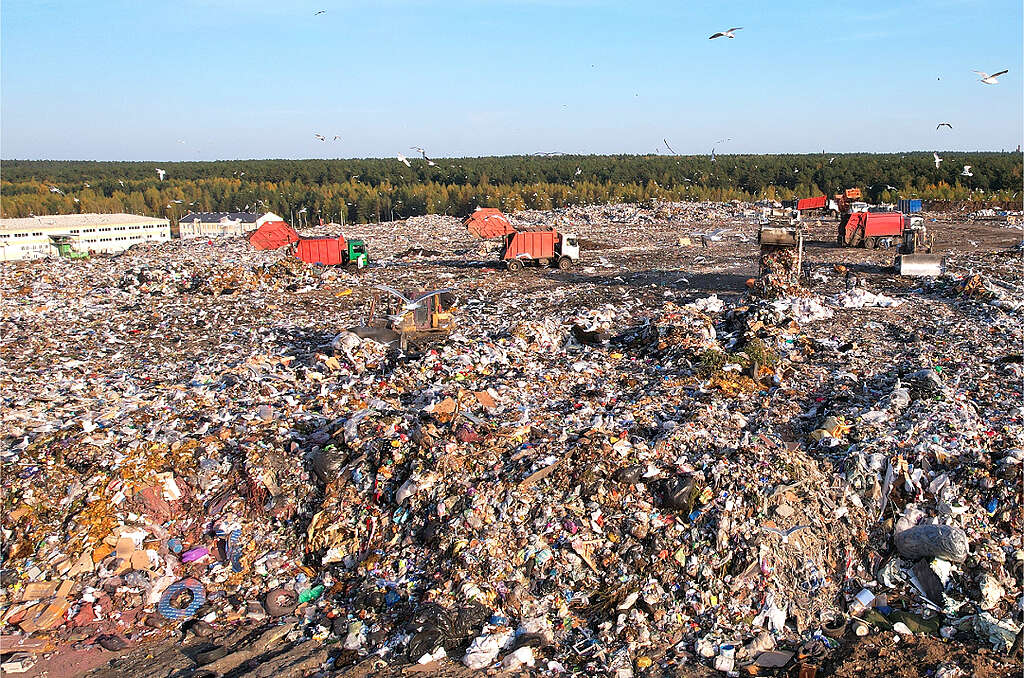
How traditional practices and modern solutions can end Waste Colonialism?
Waste colonialism is a stark reminder of global inequality, where self proclaimed developed nations export their waste to the Global South.
-
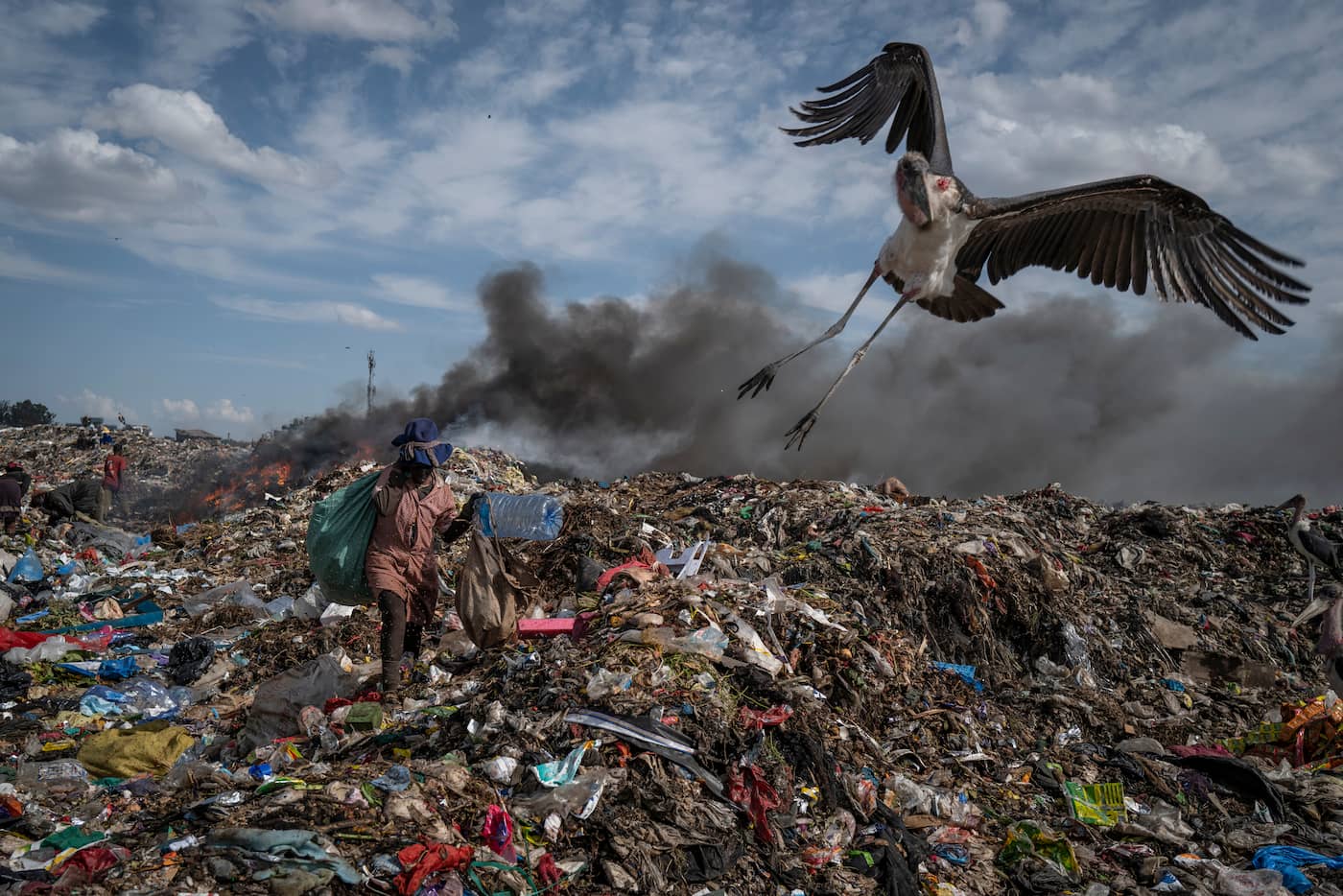
New year, same fight. 5 things that happened at the Busan Global Plastics Treaty negotiations
The fifth round of negotiations for a new Global Plastics Treaty to end plastic pollution (Intergovernmental Negotiating Committee or INC-5) finished in Busan, South Korea on 1st December 2024. This…
